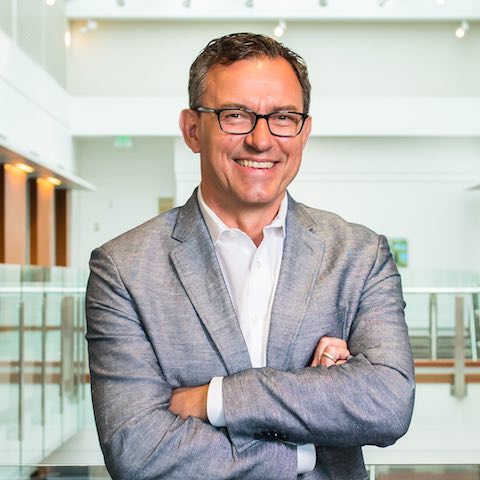Daily Discoveries
As a child, Dr. Roland Kolbeck loved nature and science and this passion eventually led to an academic career studying neurobiology in Munich, Germany. Patient need, however, soon pulled him from academia to industry, along with a desire to contribute to the drug discovery process in a more direct way.
Today, he is vice president of respiratory, inflammation and autoimmunity at AstraZeneca. During his tenure at the company, Dr. Kolbeck played a critical role in developing what has become AstraZeneca’s first respiratory biologic treatment, and he continues to search for new treatments for severe asthma patients.
“My great grandfather suffered from severe asthma, and while I didn’t comprehend it at the time, I remember a person who was bedbound due to his difficulty breathing,” says Dr. Kolbeck. “It was tragic because he was a great musician, and this disease affected his ability to do something that he loved.”

